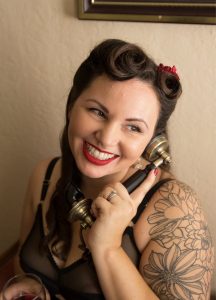
Recently I got roped into watching the Netflix reality show, The Circle. If you haven’t seen it, it’s a game show meant to determine which contestant will win the social media popularity contest. All contestants live in their own units within the same apartment complex, yet they can only communicate with each other through a social media platform that is specific to the show.
Given that they have no contact with each other outside of the text and picture-based platform, contestants can create whatever persona they desire. As expected, some contestants play themselves and use their own pictures, while others invent new identities and use other people’s pictures. One contestant, for example, catfishes as his girlfriend, believing that he would be more well–liked as a conventionally attractive woman in the social media game.
While I couldn’t muster enough interest to finish the season (most of the contestants are insufferable), I struck with it long enough to pick up on an interesting trend. In trying to assess the authenticity of other contestants, many brought up filtered pictures as evidence of catfishing. As in, “So-in-so can’t be who she says she is, look at how filtered her pictures are!”

Coming out of an online sex work milieu (where filtering and editing pictures is an art form), I found this rather strange. In fact, it’s so strange that my partner teased, “Wow, you must be fake as fuck!” I don’t manually filter my thirst traps, but only because I have learned to take my pics through an app that algorithmically filters them automatically. Snow–an app I highly recommend–will even do your makeup for you. My sex worker friend who taught me this trick said that they had to stop applying cat-eye eyeliner through the app, despite the fact that the app was great at it, because they didn’t actually know how to do it in real life and thought clients may come to expect it when meeting them.
I don’t use this makeup feature only because I enjoy putting my makeup on, I’m relatively good at the cat-eye, and the entire primping process puts me in the headspace to perform sexiness. But if this were not true, I wouldn’t be above applying makeup digitally. Afterall, I’m already taking the pictures this way.
This all brings up an interesting question: what is it about filters and makeup that signals inauthenticity?
These questions came up yet again last week when I was shooting a video series for Beautiful Agony, a website out of Australia that specializes in capturing “natural” orgasm faces. I happen to love O faces, so I was excited to film some of my own.
In order to participate in the project, you have to submit two distinctly different orgasm clips from the chest up, orgasming whatever way is natural to you.

I shot two clips. The first, on my couch in the living room with my partner orally assisting me off–camera; and the second, I masturbated in lingerie in a secluded outdoor spot (if you guess where I was, I will deny it!).
To my surprise, my outdoor scene was accepted, but I was asked to redo my indoor one because it didn’t seem natural. Why? Because my makeup was too heavy (it was the way I wear it every day), and because it seemed like I was looking at the camera (I’m a former cam girl and I currently make indie porn – I have been conditioned to look at the camera when shooting).
This is not a critique of Beautiful Agony, they were great to work with I was happy to redo the scene. It is their site and they can cultivate whatever aesthetic they desire! As a professional, I work hard to create whatever I am contracted to make, so long as it fits within my own boundaries; I do the same when clients commission custom scenes. But it did give me pause for thought.
The outdoor clip seemed natural, I assume, because we had been hiking most of the day and I no longer had a fresh set of makeup on. But let me assure you that while the scene is aesthetically interesting (that is what I was going for), there is nothing particularly natural about masturbating while laying on a dirty rock in the middle of nowhere, being poked with twigs and branches, and pretending to ignore a camera overhead. It is a performance, and a physically uncomfortable one at that (though I did somehow manage to have a real orgasm; why not make the most of it?).
On the other hand, the one I did in my house was fun, easy, and I came hard. I was home, my partner pleasured me the way he knows I like it, and I created the aesthetic that makes me feel most sexy. Did I look the way I would if I stepped out of the shower soaking wet? Of course not. But it is the look that I have carefully cultivated through makeup, tattoos, fashion, camera angles, and cosmetic enhancements, all of which make me feel most at home in my own body. It is what has become natural to me.

I am in no way suggesting that anyone succumb to the pressure to maintain beauty standards that are unattainable, uninteresting, or undesirable for them. Rather, I am suggesting that the current cultural move back to natural, that takes for granted what natural is, seems misguided. If natural just means no makeup (or in some cases spending hours to make it look like you’re not wearing makeup), or accepting your body as it is, what message does that give our trans brothers and sisters? Or really anyone who works to cultivate their aesthetic and their identities through makeup, filters, or surgeries.
More importantly, why is this notion of aesthetic naturalness framed as the moral high ground? Why would we assume, in other words, that those who wear less makeup or who don’t filter their pictures are in any way more real, or more authentic?
Perhaps, and this shouldn’t be a conceptual stretch, it is through the alternations of the body, be them physical or digital, that we express something true and real about ourselves. Perhaps it is through this artistic rendering of the self that we communicate to others who we understand ourselves to be.

Jessie Sage – she/her is the managing editor of Peepshow Media, an online magazine featuring news and stories from the sex industry, and co-host of the Peepshow Podcast. Her writing has appeared in The Washington Post, VICE, Men’s Health, Hustler, and more. She works in the sex industry as a phone sex operator and indy performer. You can find her on Niteflirt, Sextpanther, Manyvids, and Onlyfans or follow her on Twitter @sapiotextual.







Comments